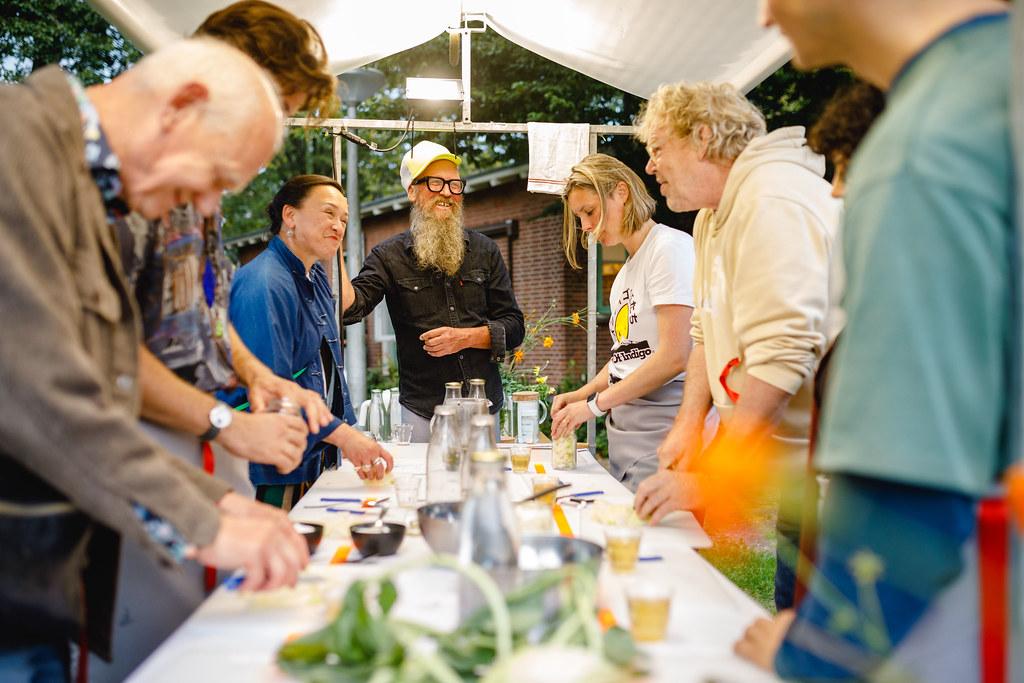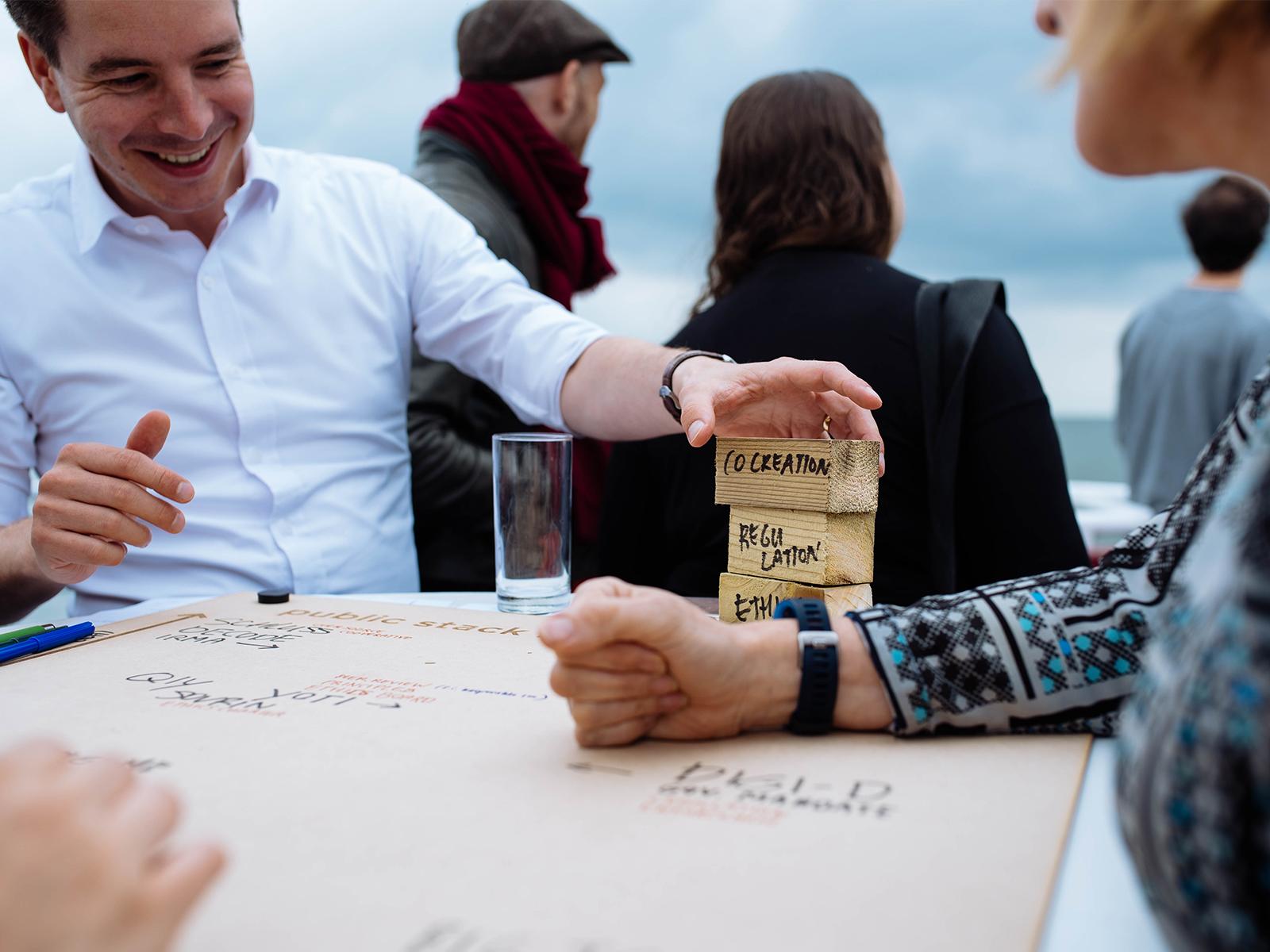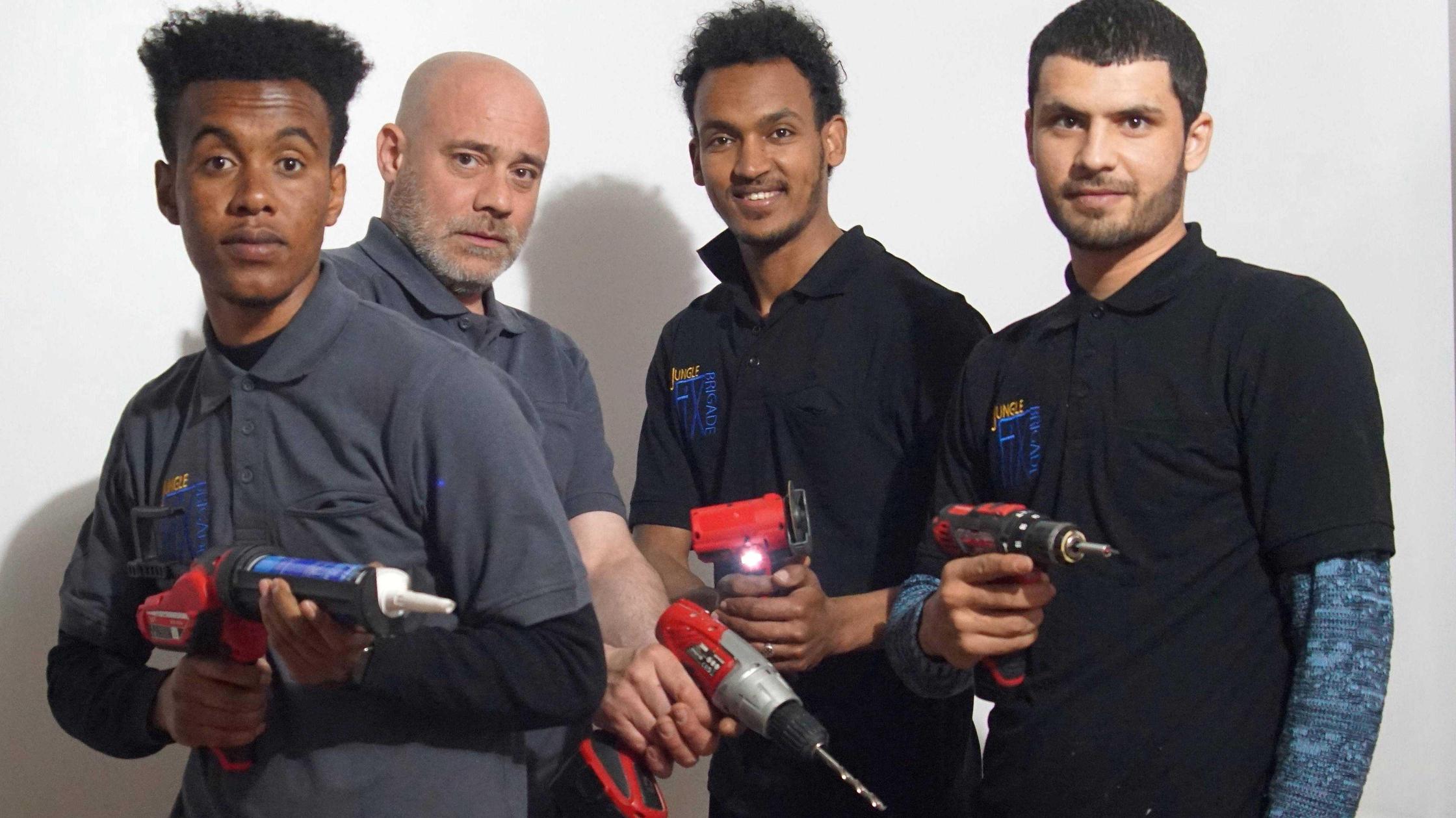In the project Public-Civic Collaboration Waag Futurelab and STBY researched how social initiatives and governments can build strong collaborations with each other. This research resulted in a Handbook for Public-Civic Collaboration: a book full of inspiration, support and design methods that civil society initiatives, officials and policymakers, as well as funders and local entrepreneurs can use to improve collaboration with each other.
Download the toolkit (in Dutch)
Download a summary of the toolkit (in English)
Through social initiatives, residents can relate to major issues and exert control over their lives and living environment. However, collaboration between government and social initiative is often difficult. Waag Futurelab and STBY investigated how government and social initiative can strengthen their cooperation. This research resulted in the Toolkit for Public-Civic Collaboration, that offers tools and support to build sustainable cooperation.
The handbook offers support to social initiatives, civil servants and policymakers, but also to financiers and local entrepreneurs active in domains where citizens, businesses and governments meet. Think of energy transition or the housing market: domains where new ways of working are sought to tackle complex issues.
Building a public-civil partnership
Good cooperation is based on common goals, values and a shared language. Establishing those three conditions creates a culture of trust. When there is a strong foundation, the infrastructure can be developed: the agreements and practices in terms of governance, finance and resources, legal frameworks, social embedding and open technology.
To create a strong collaboration, the infrastructure must take the following conditions into to consideration:
- Finance and resources: In order for social initiative to cooperate fully and structurally, it is necessary to develop appropriate funding and resources for public-civic collaboration .
- Legal frameworks: It is good to look for space within existing laws to act differently, unless the 'hacking' of policy needs to be long-term and structural.
- Governance: The government often decides to cooperate with social initiative based on its own organisational goals. However, supporting and strengthening social initiative requires connecting to already existing initiatives in society and supporting their goals.
- Social embedding: The focus should not be on scaling up social initiatives. That does not fit with the local and decentralised nature of social initiatives. The focus should be on developing initiatives; sharing insights, knowledge and working structures.
- Open technology: Open technology should be used more often. Using open technology avoids dependence on commercial parties and provides a better connection to public values.
Getting started
The toolkit also provides design tools to (re)design public-civilian collaboration in concrete steps. The tools can be used to improve different aspects of collaboration. They offer support in strengthening the basis of cooperation (values, goals and language), exploring new forms of collaboration, designing new proposals, trying out ideas and reflecting and learning.
Each tool includes a description and a worksheet with instructions. Also included with each tool are shared experiences from the public-civic collaboration around Noorderpark in Amsterdam.
Download a summary of the toolkit (in English)


